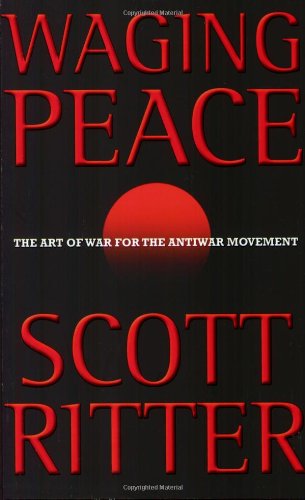Scott Ritter, former Marine and UN weapons inspector, argues that there is a growing despondency amongst the anti-war movement. Ritter proposes the anti-war movement seek guidance from sources they normally spurn that one must study the "enemy" in order to learn the art of campaigning and of waging battles when necessary. They need to understand the pro-war movement's decision-making cycle, then undertake a comprehensive course of action.
Former U.N. weapons inspector Ritter (War on Iraq) is that rarity, a peacenik who’s also a gung-ho ex-Marine besotted with the leatherneck’s romanticized warrior ethos. In this eccentric manifesto, he critiques the antiwar movement in the light of military-philosophical chestnuts gleaned from Sun-Tzu, Marine Corps “maneuver warfare” principles and aerial combat guru John Boyd’s “OODA-loop” theory. His mission, couched in a repetitious blend of stolid Pentagonese and bloody-minded exhortation, is to militarize the peace movement’s organization (“A Type I Personnel Support Unit would be able to mobilize with a week’s notice to deploy... for up to 7 days within a 500 mile radius”) and attitude (“Dominate and destroy your enemy”).
Unfortunately, Ritter’s practical proposals are cumbersome and ill-considered, his political instincts hackneyed (proposed antiwar battle cry: reverence for the Constitution) and his intellectual conceits—which encompass everything from Newtonian physics to the centrality of “conflict” in life and shopping—unenlightening. The relevance of, say, dog-fighting doctrine to political organizing remains murky, except as a vague model of abstract virtues of speed, improvisation and initiative. Ritter raises cogent points about the peace movement’s failure to think strategically, hone a compelling message and build bridges to mainstream America, but then obscures these issues in a fog of garbled war metaphors. (June)

